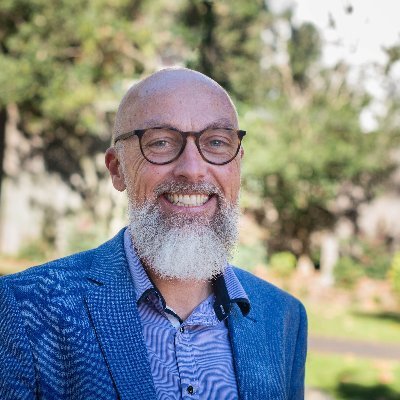NSW “Conversion Practices” – History
On March 22, 2024, the NSW Parliament passed the Conversion Practices Ban Act.
History of the bill
2023 NSW Election
In the lead up to the 2023 NSW election, independent MP Alex Greenwich declared that a condition of his support for any new Government would be a ban on “conversion therapy”. Mr Greenwich also set the Victorian legislation as his preferred model for the ban.
Both major parties committed to banning “conversion therapy” in principle, however they had no detail and had not engaged with the implications of the Greenwich or Victorian models. Freedom for Faith assisted churches to run “candidate forums” in 35 electorates across NSW, asking a range of questions including about “conversion therapy”. We also briefed the major parties about the issue and our concerns.
As a result, the ALP provided a commitment to be given by candidates at the forums:
… Neither the Greenwich Bill nor the Victorian model will be the starting point for our legislation. Any legislation to ban conversion therapy or suppression practises must not outlaw individuals voluntarily seeking out medical health, allied health or other advice and assistance regarding their personal circumstances.
Chris Minns, as Leader of the Opposition, attended a multi-faith town-hall where he made similar commitments:
… I’ve said that we’re going to pursue our own bill in relation to this. We’re not just going to transpose the Victorian legislation and implement it into New South Wales …
… Taking offence at the teachings of a religious leader will not be banned. Expressing a religious belief through sermon will not be banned. And an individual, at their own consent, seeking guidance through prayer will not be banned either.
Government Working Group
In August 2023, a working group from the Department of Communities and Justice and the Department of Health released a consultation paper proposing an approach for banning “LGBTQ+ conversion practices”. That proposal appeared to have been drafted only with reference to Labor’s initial promise to ban “conversion practices”, and notably made no reference to most of the commitments made by Labor at public events prior to the election.
Despite the promises from Labor, the proposal worked from a definition of “conversion practices” that was based on, and almost exactly the same as, that of Victoria. It drew a very broad definition of what “suppression” meant, including prayer and preaching, and proposed that any “suppression” should be banned whether or not it has been consented to.
The consultation gave a four-week window to respond to the proposal, with “select consultation” meetings held during the period. Freedom for Faith helped coordinate a multi-faith submission and response to the proposal, highlighting the risks that the Victorian model posed to religious freedom and parental rights.
Greenwich Legislation
Soon after the consultation was released, Alex Greenwich introduced his own legislation to Parliament. That bill was an almost complete copy of the Victorian legislation, and would have had the same devestating impact on religious freedom and parental rights. After intense discussions with faith leaders, the Government declared that they would not support Mr Greenwich’s legislation, and would proceed to writing their own legislation.
(Note: At the time, Mr Greenwich’s “conversion practices” legislation was also bound up with other legislation. The “conversion practices” bill was eventually removed from the rest of the package, which was eventually known as the “Equality” bill. The “Equality” bill is still active, and due to be debated August 2024)
November legislation deadline
At the release of the consultation paper, the Government declared that they planned to legislate by the end of 2023. This meant that legislation had to be introduced, debated and passed by the end of November. With submissions closing in September, there would only be a month for the Goverment to consider all issues and re-write the proposal to protect religious freedom.
This raised significant fears that the consultation process was a mere formality, and that a Victoria-style bill was certain to be presented in November with little debate or negotiation.
Contact Your MP Campaign
In response to these dual threats, Freedom for Faith developed a campaign and resources to help people call, write and meet with their local MP and advocate on these issues. The resource developed into the contactyourmp.org.au website, with facilities to search for your local MP, and get guides for writing or calling them with specific talking points depending on the MPs party and position. We also developed a detailed guide to having a meeting with your MP, with guides and resources to make it as easy as possible for a church or individual to get a meeting and have an effective conversation.
In the following months, thousands of people searched for their MP to write to them. We have had conversations with MPs on both sides who have noted how many emails they have received on the issue – in many cases far more than any other issue at the time. We also heard reports confirming that almost every MP had a church minister or group of ministers go and have a meeting with them to discuss their concerns.
Final bill and campaign
As a result of this campaign, the Government initiated a confidential consultation and negotiation with key NSW faith leaders. This process extended past the November deadline, and the Government demonstrated their commitment to negotiation by refusing to force the legislation until they had found a middle ground that they considered appropriate. The details of the process are closed, but over a series of meetings and legislation drafts, the initial proposals were moderated to include greatly improved exemptions for religious teaching, prayer, parental guidance and medical professionals.
The final bill was introduced in Parliament on 13 March 2024 and scheduled for debate the following week.
On its release, it became apparent that the religious and parental exemptions were unclear in their language. Faith leaders developed four amendments asking for clearer language.
Freedom for Faith and faith networks asked people to write to their MP asking for these amendments. Thousands of emails were sent. We understand activists campaigning for a weakening of the exemptions also sent a significant amount of emails. While this email campaign was ultimately unsuccessful in gaining further amendments, it did serve to counter any possibliity of the bill being watered down in the Legislative Council.
The Opposition introduced numerous amendments, and called for an inquiry into the bill. However, all motions were defeated by the Labor Goverment, Greens and Independents.
On 22 March 2024, the bill was passed without amendments.
Next steps
Implementation
Freedom for Faith will continue to support faith leaders as we engage with the NSW Government on this legislation. We have yet to see how the ambiguities in the law will impact its implementation. The Government has made clear commitments as to what will not be banned in this Act, and we will be reinforcing with them our expectation that the implementation will honour their stated intentions.
2027 NSW Election
One of the most important elements in the campaign were the election forums leading up to the 2023 NSW election, and the commitments we extracted from both parties. Freedom for Faith is planning to again resource churches to hold candidate forums for the 2027 election – with a target of a forum in each of the 93 NSW electorates. The impact of this legislation will almost certainly be a topic of questions for those forums, including requests for any changes needed to preserve religious freedoms and parental rights.



